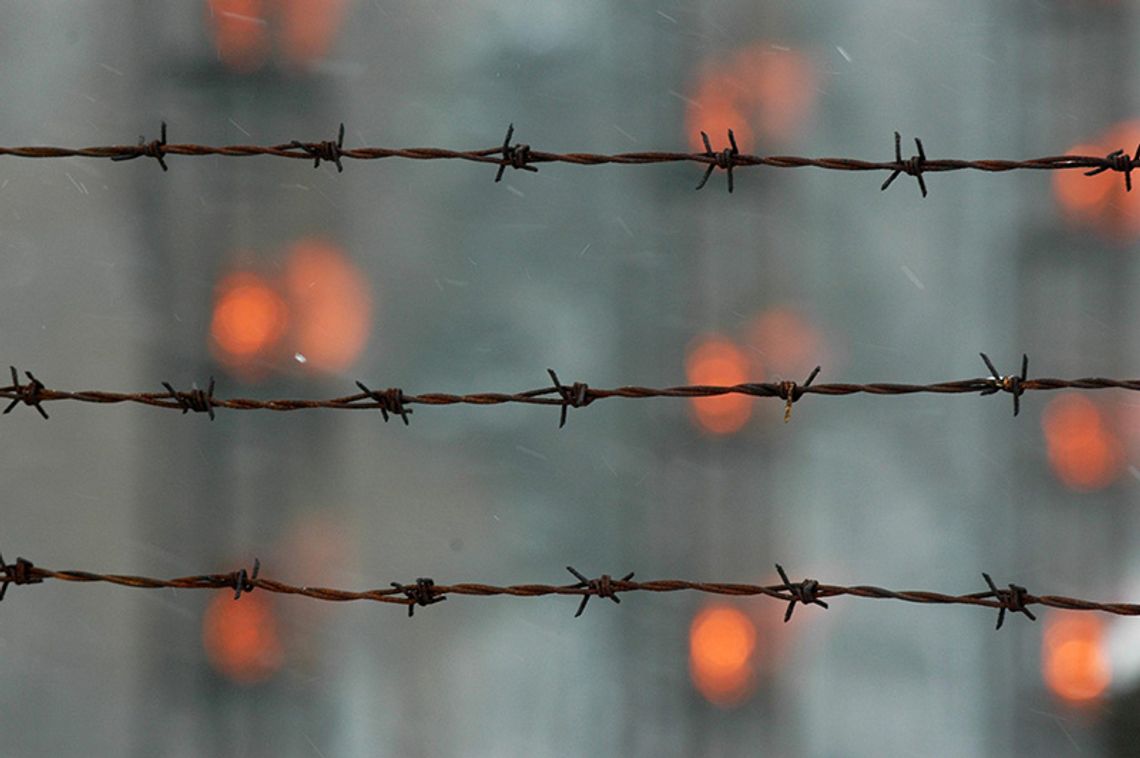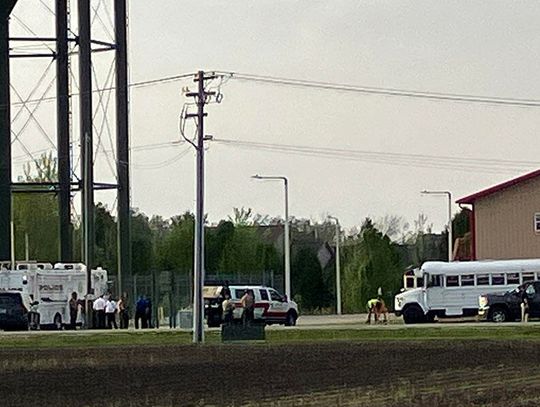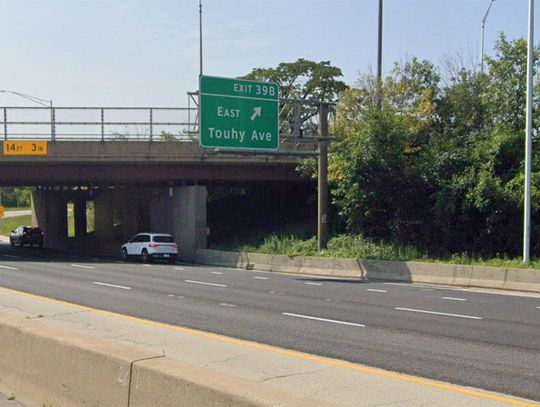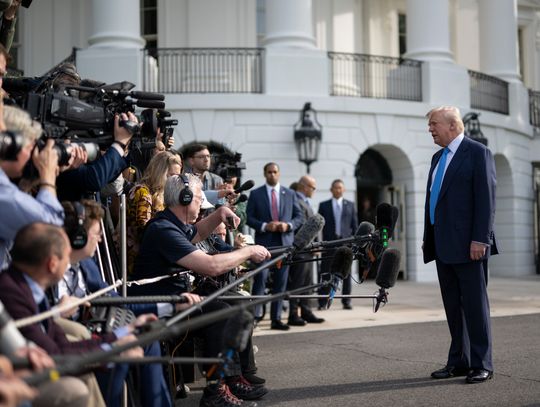Wygłosiłem ostatnio wykład w szkole średniej tutaj w Lynchburgu. W sali wykładowej zgromadziło się około setki uczniów. Przyszli, by nauczyć się o Holokauście, aby mogli napisać o tym wiersz na konkurs, który co roku ogłaszają edukatorzy Holokaustu ze środkowej Wirginii.
Zanim zacząłem mówić o wojnie i czytać wiersze o moich rodzicach – polskich katolikach i ich doświadczeniach jako niewolnicy w obozie w nazistowskich Niemczech, jeden z nauczycieli, który organizował ten wykład, zapytał uczniów, czy wiedzą o Holokauście.
Około dwie trzecie z nich podniosła ręce. Jedna trzecia nie podniosła. Przyznali, że nie wiedzieli o Holokauście, nie wiedzieli, dlaczego do niego doszło, jak wyglądał i kim były ofiary Holokaustu.
Byłem w szoku. Podczas 40 lat mojego pisania o rodzicach i ich doświadczeniach, wygłosiłem wiele wykładów o Holokauście i drugiej wojnie światowej, i o tym, co stało się tak wielu ludziom. Po tych wykładach podchodzili do mnie uczniowie, nauczyciele i dorośli, którzy nie byli ani studentami, ani nauczycielami, aby powiedzieć, że nie mieli pojęcia, że Niemcy zabili tak wielu Żydów i nie-Żydów.
Nie, już dawno nie byłem zszokowany tym, jak wiele osób nie wie o Holokauście i co stało się z Żydami oraz z takimi ludźmi jak Polacy, Cyganie i upośledzeni umysłowo, których również Niemcy uważali za untermenschen, czyli podludzi.
Nie byłem zszokowany – byłem rozczarowany, kiedy uczniowie podczas tego wykładu w tej sali powiedzieli, że nie mają pojęcia o Holokauście.
Byłem nawet bardziej rozczarowany dziś rano, kiedy przeczytałem artykuł w „The Economist”, który mówił o tym, że około 20 procent uczniów w Stanach wierzy, że Holokaust jest mitem, podczas gdy około 25 procent uważa, że Holokaust został wyolbrzymiony.
Chciałbym wiedzieć, dlaczego rodzice i nauczyciele tych uczniów nie opowiadają im o Holokauście i wojnie światowej, w wyniku której zginęło około 80 milionów ludzi, co stanowiło 3 procent całkowitej populacji ówczesnej ziemi.
80 milionów zgonów, a większość tych ofiar to nie żołnierze. Chociaż zginęło 25 milionów żołnierzy, resztę ofiar stanowili cywile – matki, ojcowie i ich dzieci.
Ci, którzy twierdzą, że Holokaust jest mitem, najprawdopodobniej twierdzą również, że druga wojna światowa jest mitem lub przesadą.
Co można zrobić z brakiem tej wiedzy?
W 1979 r. Kongres zatwierdził coroczne narodowe obchody Holokaustu zwane „Dniami Pamięci o Ofiarach Holokaustu”.
Nie sądzę, że to coroczne upamiętnienie wystarczy.
Dziś rano przeczytałem, że w zeszłym tygodniu ponadpartyjna grupa senatorów przedstawiła projekt ustawy o ponownym zatwierdzeniu Ustawy o Edukacji „Nigdy więcej” – ustawy zapewniającej federalne fundusze na edukację o Holokauście.
Wątpię, czy to wystarczy, ale możemy mieć tylko nadzieję, że pomoże.
The Holocaust is Not a Myth
Recently, I gave a talk at a high school here in Lynchburg. There were about a hundred students in the lecture hall. They were there to learn about the Holocaust, so they could write poems about it for a contest that’s run every year by the Holocaust Educators of Central Virginia.
Before I started talking about the war and reading poems about my Polish, Catholic parents and their experiences as slave laborers in Nazi Germany, one of the teachers who organized the reading asked the students if they knew about the Holocaust.
About two thirds of them raised their hands. A third didn’t raise their hands. They admitted that they didn’t know about the Holocaust, didn’t know about why it happened or what it was like or who the victims of the Holocaust were.
I wasn’t shocked. In my 40 years of writing about my parents and their experiences, I’ve given a lot of lectures about the Holocaust and World War II and what happened to so many people. I’ve had students and teachers and adults who weren’t either students or teachers come up to me after these readings to tell me that they had no idea that so many Jews and non-Jews were killed by the Germans.
No, for a long time, I haven’t been shocked by how many people don’t know about the Holocaust and what happened to the Jews and those people like the Poles and the gypsies and the mentally handicapped who were also considered untermenschen, subhumans, by the Germans.
I wasn’t shocked, but I was disappointed when the students in that lecture hall said they didn’t know about the Holocaust.
I was even more disappointed this morning when I read an article in The Economist that said that about 20% of students in the United States believe that the Holocaust is a myth while about 25% feel that the Holocaust has been exaggerated.
I want to know why the parents and teachers of these students aren’t telling them about the Holocaust and the World War that resulted in an estimated 80 million deaths, 3% of the total population of the earth at that time.
80 million deaths, and most of the people who died weren’t soldiers. Although 25 million soldiers died, the rest of the dead were civilians, mothers and fathers and their children.
The people who say that the Holocaust is a myth are most likely also saying that World War Two is a myth or an exaggeration.
What can be done about this lack of knowledge?
In 1979, Congress authorized an annual national commemoration of the Holocaust called “The Days of Remembrance of the Victims of the Holocaust.”
I don’t think this annual commemoration is enough.
I read this morning that last week a bipartisan group of senators introduced a bill to reauthorize the Never Again Education Act, an act that provides federal funding for Holocaust education.
I doubt if that will be enough either, but we can only hope that it will help.
John Guzlowski
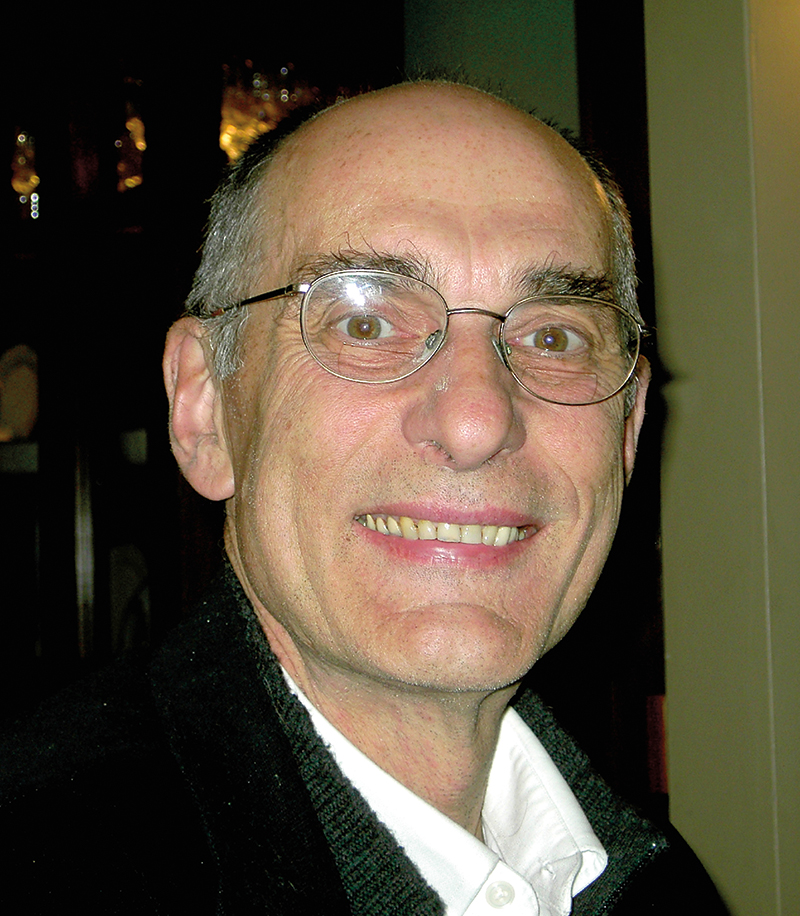
amerykański pisarz i poeta polskiego pochodzenia. Publikował w wielu pismach literackich, zarówno w USA, jak i za granicą, m.in. w „Writer’s Almanac”, „Akcent”, „Ontario Review” i „North American Review”. Jego wiersze i eseje opisujące przeżycia jego rodziców – robotników przymusowych w nazistowskich Niemczech oraz uchodźców wojennych, którzy emigrowali do Chicago – ukazały się we wspomnieniowym tomie pt. „Echoes of Tattered Tongues”. W 2017 roku książka ta zdobyła nagrodę poetycką im. Benjamina Franklina oraz nagrodę literacką Erica Hoffera za najbardziej prowokującą do myślenia książkę roku. Jest również autorem serii powieści kryminalnych o Hanku i Marvinie, których akcja toczy się w Chicago oraz powieści wojennej pt. „Retreat— A Love Story”. John Guzlowski jest emerytowanym profesorem Eastern Illinois University.
-
John Guzlowski's writing has been featured in Garrison Keillor’s Writer’s Almanac, Akcent, Ontario Review, North American Review, and other journals here and abroad. His poems and personal essays about his Polish parents’ experiences as slave laborers in Nazi Germany and refugees in Chicago appear in his memoir Echoes of Tattered Tongues. Echoes received the 2017 Benjamin Franklin Poetry Award and the Eric Hoffer Foundation's Montaigne Award for most thought-provoking book of the year. He is also the author of two Hank Purcell mysteries and the war novel Road of Bones. Guzlowski is a Professor Emeritus at Eastern Illinois University.


